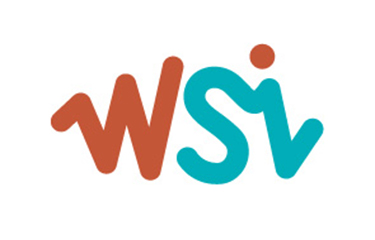Women in the Seafood Industry closes down, citing lack of funding and resources

The International Organization for Women in the Seafood Industry (WSI) closed its doors at the end of December 2022, blaming a lack of resources directed at solving gender issues as one of the primary causes of its shuttering.
For the previous eight years, WSI had worked to bring the seafood industry’s attention to the issue of gender, in partnership with governments, international organizations, companies, and individuals. One major part of the group’s work was challenging conference organizers to include more women speakers.
Yet despite its efforts, in particular those of WSI Co-Founder Marie Christine Monfort, who led the organization until stepping down in early 2022, there is still a major lack of awareness and understanding of the complexity of the issue, and gender inequality remains a serious issue confronting the seafood industry, the organization said in a note sent to stakeholders 30 December, 2022.
“The decision was made with much regret and following long deliberations. However, the spirit of the work remains,” WSI said.
The organization said it hoped others will take up the baton to build on WSI’s legacy and encouraged its followers to continue the work of advocating for change.
Working at the forefront of the battle to achieve women’s equality and empowerment in seafood companies and institutions, WSI had become an influential international feminist organization and a go-to source of scientific information on gender issues, according to Julie Kuchepatov, the founder of Seafood and Gender Equality (SAGE), an organization founded in 2020 focused on gender equality and women’s empowerment in the seafood sector.
“WSI will really be missed. I particularly relied on their excellent research to inform many of SAGE’s strategies and activities,” Kuchepatov told SeafoodSource.
Kuchepatov, who has worked for more than two decades on implementing environmental sustainability and social responsibility in global seafood production, said the demise of WSI will leave a significant hole in the sector, but one SAGE is stepping up to partially fill. She said SAGE will continue to encourage the industry to evolve into a more-diverse, -inclusive, and -equitable career choice for people of all genders.
Before its closure, WSI had worked closely with SAGE to develop and launch the Gender Equality Dialogues (GED), a virtual one-year program starting mid-2023 that will offer seafood industry leaders an opportunity to learn about the key barriers to gender equality and help them make measurable and actionable commitments. It will also provide them with tools and information to drive and monitor change. Kuchepatov hopes to attract a wide range of participants who recognize that the industry has a gender inequality problem but don’t know how it is expressed or what to do about it.
“The dialogues were inspired by recommendations in a 2018 WSI report that looked at the perception of gender inequality in the sector, and I am sad that they won’t be working with me on bringing the key recommendation – dialogue – to life,” Kuchepatov said. “There are not many organizations working at the intersection of seafood and gender, particularly in Europe and the U.S., but our work is important on so many levels. Our initial focus is in North America, hopefully moving on to other markets, with the aspiration to eventually have a global reach.”
Other organizations have highlighted and celebrated women in seafood, such as the Alaska Seafood Marketing Institute and its Strong at Sea campaign, but there remains a lack of gender-disaggregated data, along with information about how to get involved in the industry at the executive level. As a result, men continue to dominate the industry and few women occupy top leadership roles, Kuchepatov said.
According to the U.S. Agency for International Development, gender equality is achieved when the different behaviors, aspirations, and needs of women and men are considered, valued, and favored equally. This is not borne out within the seafood industry, where around half of those involved in production are women but most remain concentrated in pre- and post-harvest activities, where their role remains largely ignored, making them less visible, recognized, and valued, she said.
To address this, later this year, SAGE will launch The Bloom, a new networking community for women and gender-queer people in the seafood industry, which aims to provide them with a platform to learn from each other and experts, along with support to help develop their careers.
SAGE also aims to set up strategic partnerships to provide mentorship programs for women, and to investigate ways to encourage gender mainstreaming. Research shows that having women leaders in positions of influence to serve as role models is critical to the career advancement of women, leads to a more inclusive space with more diversity of voices and experiences, and to smarter, less risky decisions, which in turn lead to better bottom lines.
“To solve the complex challenges in the seafood sector around equality in general, and gender equality in particular, requires dialogue, action and dedicated collaboration from different supply chain actors,” Kuchepatov said. “We have seen countless times how when the industry gets together to address a challenge, they can do it. SAGE will bear the torch ignited by WSI and steward the next evolution of the sector to be more just, inclusive, and benefitting people of all genders.”






Share